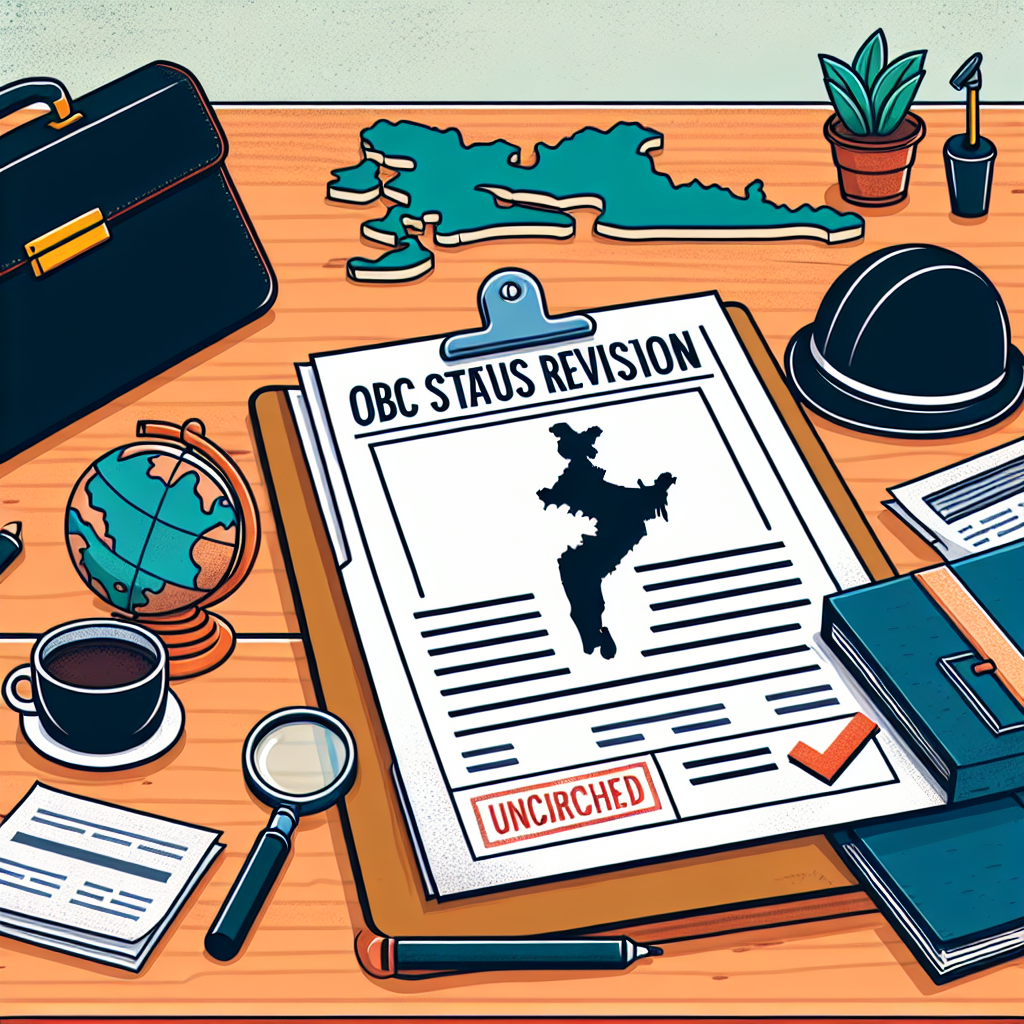Calcutta High Court Nullifies 77 OBC Classes in West Bengal
The Calcutta High Court struck down OBC status for 77 classes in West Bengal, citing illegal reservations. The court stated these classifications were politically motivated, jeopardizing over five lakh individuals. Existing reservations remain unaffected. The bench emphasized the necessity for proper consultation with the state’s Backward Classes Commission.

- Country:
- India
The Calcutta High Court on Wednesday struck down the Other Backward Classes (OBC) status of several classes in West Bengal granted since 2010, finding such reservations to vacancies in services and posts in the state are illegal.
Passing judgment on petitions challenging the provisions of the state's reservation Act of 2012 and reservations granted in 2010, the court clarified that the services of citizens of the struck-down classes, who are already in service or have availed the benefit of reservation or have succeeded in any selection process of the state, will not be affected by the order.
The number of enlisted persons under OBC in West Bengal after 2010 is likely to be above five lakhs, one of the lawyers representing the petitioners claimed.
In all, the court struck down 77 classes of reservation given between April 2010 and September 2010, and 37 classes created based on the Act of 2012. The CPI(M)-led Left Front was in power in West Bengal till May 2011 and thereafter the Trinamool Congress government took over.
Noting that ''religion indeed appears to have been the sole criterion'' for declaring these communities as OBCs, the court said it ''is of the view that the selection of 77 classes of Muslims as backwards is an affront to the Muslim community as a whole.'' Maintaining that this court's mind is not free from doubt that ''the said community (Muslims) has been treated as a commodity for political ends,'' the bench said, ''This is clear from the chain of events that led to the classification of the 77 classes as OBCs and their inclusion to be treated as a vote bank.'' The court struck down 37 classes for reservation as OBC given under The West Bengal Backward Classes (Other than Scheduled Castes and Scheduled Tribes) (Reservation of Vacancies in Services and Posts) Act, 2012.
While the court scrapped the 77 classes for the illegality of reports recommending such classification, the other 37 classes were set aside for non-consultation of the West Bengal Backward Classes Commission.
The bench also struck down an executive order of May 11, 2012, creating several sub-classes.
The court said that the directions will be given prospective effect.
In the 211-page judgement, the division bench comprising justices Tapabrata Chakraborty and Rajasekhar Mantha clarified that the executive orders of the state government classifying 66 classes of OBC before 2010 were not interfered with, since these were not challenged in the petitions.
The court also struck down an executive order of September 2010 by which the percentage of reservation for the OBCs was increased from 7 per cent to 17 per cent, providing for 10 per cent reservation for Category A and 7 per cent for Category B, on the ground of non-consultation of the commission. The bench said that an increase of 10 per cent in the percentage of reservation was due to the subsequent inclusion of classes, made from the year 2010, which were set aside by it.
''It is accordingly held that the 66 classes would be enjoying a 7 per cent reservation,'' the court directed.
The court also struck down section 5(a) of the Act of 2012, which distributes the percentage of reservation in 10 per cent and 7 per cent to the sub-classified classes. ''Consequently, the sub-classified classes listed in the two categories namely OBC-A and OBC-B are struck down from Schedule I of the Act of 2012,'' the court directed.
It said that identification of the classes in the Muslim community as OBCs for electoral gains would leave them at the mercy of the political establishment concerned and may defeat and deny other rights. ''Such reservation is therefore also an affront to Democracy and the Constitution of India as a whole,'' the court observed.
While noting that the Constitution and decisions of the courts do not prohibit an identification process to start with religion, the court said, ''What is, however, prohibited is the sole reliance on religion for the purpose of making provisions for reservation.'' The bench said that the opinion and advice of the Backward Classes Commission is ordinarily binding on the state legislature under provisions of the West Bengal Commission for Backward Classes Act, 1993.
The court directed the Backward Classes Welfare Department of the state, in consultation with the Commission, to place a report before the legislature with recommendations for inclusion of new classes or for exclusion of remaining classes in the state list of OBCs.
Concurring with the judgment penned by Justice Mantha, Justice Chakraborty observed, ''The concept of equality of opportunity in public employment concerns an individual, whether that individual belongs to the general category or backward class.'' He said, ''The society at large has a stake in proper application of the yardsticks pertaining to reservation.'' A prayer by the state for a stay of the order was rejected by the bench.
The role of the West Bengal Commission for Backward Classes is to collect materials by survey or other means, hear the parties, and render its advice, based on objective criteria and materials, to the state, the court said.
It said that the advice of the commission is ordinarily binding upon the state, subject to disagreement by the latter. The bench said that consultation with the commission is mandatory both for the purposes of sub-classification of the OBCs and determining the percentage of reservation for the classes or the sub-classes.
(This story has not been edited by Devdiscourse staff and is auto-generated from a syndicated feed.)










